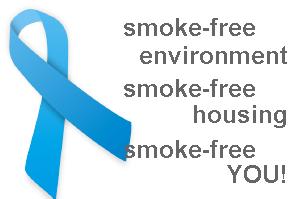Mediating for Elders Rights
 The Center for Social Gerontology, Inc. (TCSG), since its inception in 1972, has been a non-profit research training and social policy organization dedicated to promoting the individual autonomy of older persons and advancing their well-being in society.
The Center for Social Gerontology, Inc. (TCSG), since its inception in 1972, has been a non-profit research training and social policy organization dedicated to promoting the individual autonomy of older persons and advancing their well-being in society.
TCSG in the late 1980s pioneered the use of mediation in situations in which family members or friends had already petitioned for guardianship over an older person. TCSG’s goal was to determine if mediation might provide an alternative means of addressing the issues which were prompting the guardianship petition, particularly whether an alternative might be available which would address the issues without taking away the rights of the older person to make all or most of their own decisions about her/his life. TCSG pilot tested the use of mediation in adult guardianship cases in Washtenaw County, Michigan and then expanded this approach to a number of other sites. The result was the development of TCSG’s adult guardianship mediation training which has now been used to train hundreds of mediators across the country. TCSG also produced its highly praised Guardianship Mediation Manual which has been widely disseminated nationally and internationally.
In the mid 1990s, TCSG expanded its guardianship mediation initiatives to also include pre-petition cases, and, early in the 2000s, further expanded to include elder/family caregiver cases involving difficult and stressful decisions, discussions and disputes.
The TCSG Publications section of this web site contains numerous and valuable information and materials on the uses of mediation with older persons, particularly in situations in which guardianship or caregiver assistance is involved.
Championing Alternatives to Guardianship
The Center for Social Gerontology, Inc. (TCSG), since its inception in 1972, has been a non-profit research, training and social policy organization dedicated to promoting the individual autonomy of older persons and advancing their well-being in society.
Since the mid-1980’s, TCSG has devoted special attention to the issue of guardianship and older Americans because the imposition of full guardianship strips a person of all her/his decision-making rights. Thus, it is a major threat to individual autonomy. We do, however, recognize that it is needed in certain situations.
As a result of TCSG’s concerns about guardianship and the manner in which it is imposed and utilized, we have conducted numerous studies of various aspects of the guardianship issue, and done substantial work to promote less restrictive alternatives. This has included a landmark study on how the guardianship system operates in the courts; a number of studies and projects pioneering the use of mediation in guardianship cases, in an effort to avoid unnecessary use of guardianship. It also included very early recognition of an emerging service industry of individuals and organizations available to provide guardianship services for a fee – guardianship service providers (GSPs). We undertook the first-ever study of GSPs (in Michigan), and based on learning from that study and guidance from an excellent national advisory committee, we developed the first-ever standards for GSPs. These were issued as a Committee Print by the U.S. House Select Committee on Aging Subcommittee on Housing and Consumer Interests.
The TCSG publications section of this site contains valuable information on guardianship and alternatives, including reports on TCSG’s studies and policy recommendations, and our standards for guardianship service providers.
Promoting Smoke-free Environments
Check out the following links to see our work with Smoke Free Environments:
Smoke-Free Environments Law Project
The Smoke-Free Environments Law Project (SFELP) is a statewide project which provides information, consultation and advice for businesses, local units of government, and individuals in Michigan on policies and practices to protect employees and the general public from the harmful effects of environmental tobacco smoke (ETS) and to address the legal requirements and liability issues related to ETS.
National Center for Tobacco-Free Older Persons
The National Center for Tobacco-Free Older Persons (NCTFOP), created by and an integral part of The Center for Social Gerontology (TCSG), is dedicated to redressing and mitigating the physical and emotional harm to older persons caused by the actions of the tobacco industry. The NCTFOP will serve as a national advocate for and source of information on tobacco and older persons issues, as well as a center for conducting research, education and training to increase public awareness of the effects of tobacco on older persons and to reduce smoking and exposure to secondhand smoke by older persons.
MI Smoke Free Apartment
For Tenants:
As a tenant in a rental property, you have the right to live free of a significant cause of illness in the home and a major cause of preventable death in the United States: secondhand smoke. With all the controversy surrounding this issue, you may find it difficult to understand what your non-smoking rights are. You will be redirected to a site that is separate from our work and you will find the information you need to live in a smoke-free environment.
For Landlords:
A smoke-free policy is NOT discriminatory.
As a landlord, you can play a role in eliminating a significant cause of illness in the home and a major cause of preventable death in the United States: secondhand smoke. There is so much false information available to landlords about smoke-free policies, that you may find it difficult to make an informed decision. On this site you find all of the information you will need to make your property smoke-free.



